Description
ABSTRACT
Examining the Legality of Call Interception Regulations in Nigeria
Oludayo Bamgbose*, Temiloluwa Omidiji** and Afolake Oladele***
Communication interception is not a new area of development in telecommunication management globally, particularly in the western world. However, this concept is alien to Nigeria as it conflicts materially with the constitutional provision that guarantees privacy of communication. This study examines the on-going efforts by the Nigerian Communications Commission (NCC) to introduce interception of communication in Nigeria vis-a-vis the constitutional provision for citizen’s rights to privacy of communication. Being a constitutionally guaranteed right, the study concludes that the process that should mid-wife interception of calls ought not to be through regulations. Among other things, it is recommended that the NCC works with the National Assembly to initiate appropriate legislation or constitution amendment so as not to make the entire exercise a nullity.
INTRODUCTION
The object of law is to solve difficulties, adjust relations in social and commercial life. It must grow with the development of the Nation. It must face and deal with changing or novel circumstances. And unless it can do that, it fails in its function and declines in its dignity and value.1
The above jurisprudential assertion is informed by the dynamic nature of the society. As a result, the legal fabric that holds the society must periodically examine itself to remain in tune with modern realities and demands. Little wonder then that laws are frequently modified even to the extent of challenging existing laws.
Recently, the law relating to privacy of telephone conversation in Nigeria is one of the laws being confronted with the changing demands of the society. It would be recalled that telephoning in Nigeria only received a boost in the early 2000 when the then President – Chief Olusegun Obasanjo GCFR liberalised the telecommunication sector to usher-in private investors into the sector. The main thrust of the liberalisation exercise was to come to the rescue of the ailing state-owned telecommunication provider, Nigerian Telecommunication Limited (NITEL) which prior to that time had the monopoly, with only about 4,000 telephone lines.2 Barely less than two decades into the liberalisation, the hitherto 4,000 wired telephone lines have now multiplied into tens of millions of mobile telephone lines much against the scepticism of many critics and antagonists who thought the privatisation was going to completely cripple the system that was still managing to survive as at that time.
* BLIS (Library and Information Studies), LL.B, BL, (MLIS in view). Law Librarian, Ajayi Crowther University, Oyo, Nigeria.
** Dip. Library Study, LL.B, BL, (MLIS in view). Team Lead, Quantity Control Unit, Law Pavilion, Ibadan, Nigeria.
*** MMRM (Media Resources Management), B.A (Hons) Mass Communication. Information Officer, Oyo State Government and currently, Post Graduate Student in Media Resource Management, University of Ibadan.
- Per Mac Cardie in Pager v Claspell, Stamp and Hea Cock Ltd (1924) I KB 566 at 570 cited by Ogbuanya, N. S., Essentials of Corporate Practise in Nigeria (Novena Publishers Ltd., Lagos 2013).
- Prior to the liberalization, the beneficiaries of the very few available telephone lines were government-owned institutions, international organizations including foreign missions to Nigeria, top-notch business organisations and high net worth individuals.

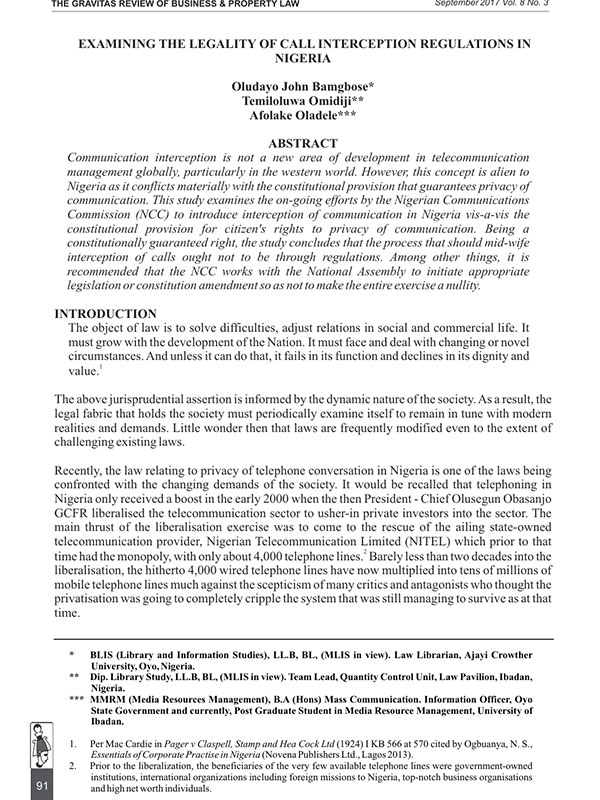
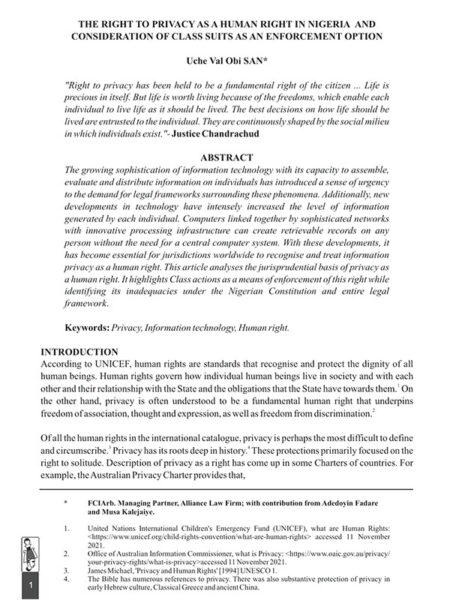
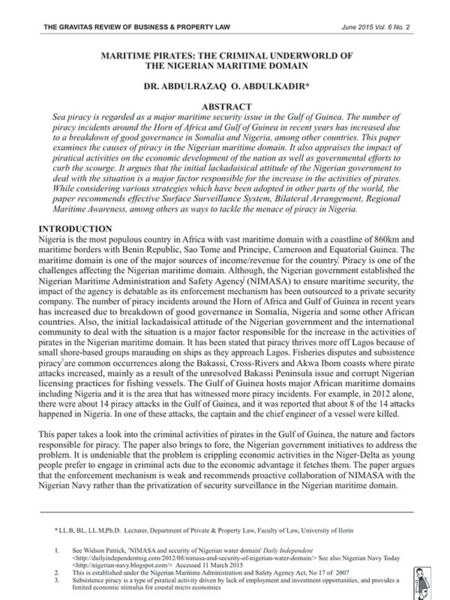
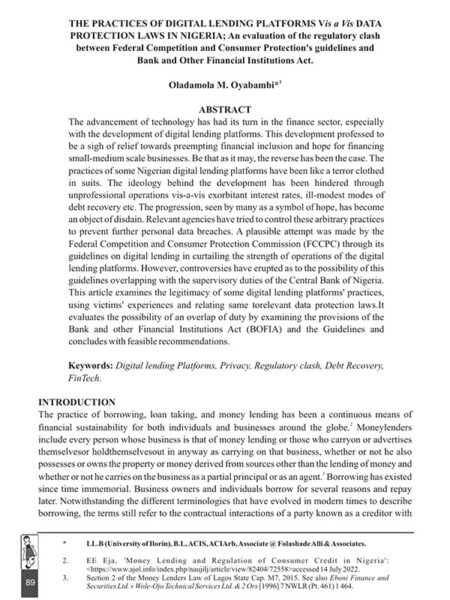
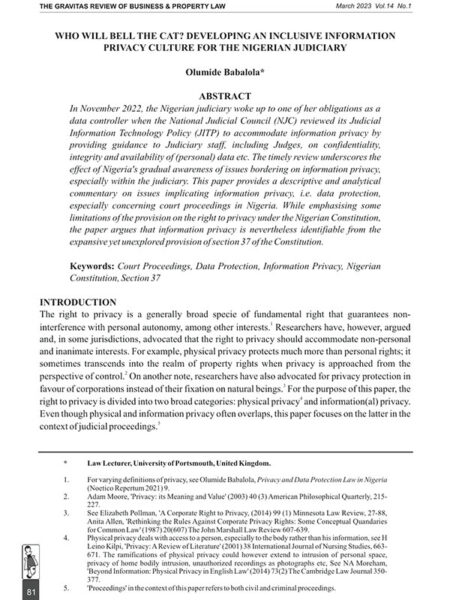


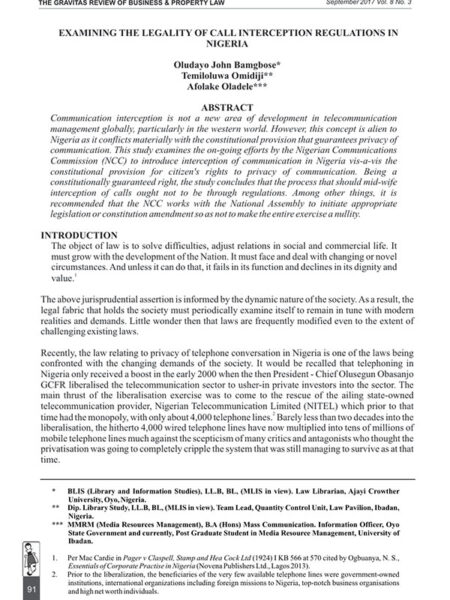
Reviews
There are no reviews yet.